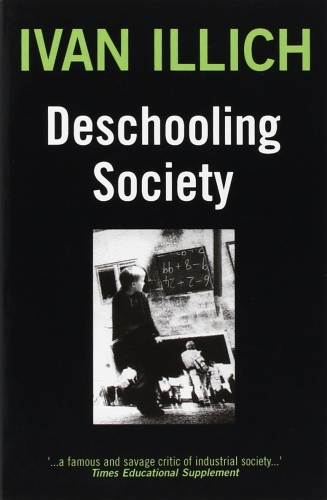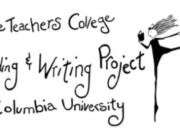 While most of the professional development books I read are how-to books, and not in any way heavy or philosophical, Ivan Illich’s Deschooling Society most certainly is a deep read. Had I not had this book on an assigned reading list, I would never have chosen it. Now that I have read it, I think all educators who want transformation within the schooling system should put it at the top of their list.
While most of the professional development books I read are how-to books, and not in any way heavy or philosophical, Ivan Illich’s Deschooling Society most certainly is a deep read. Had I not had this book on an assigned reading list, I would never have chosen it. Now that I have read it, I think all educators who want transformation within the schooling system should put it at the top of their list.
When Ivan Illich first wrote Deschooling Society in 1970, some of his ideas and hopes for the future may have seemed radical, unattainable and nearly ludicrous to most of those in the education profession and probably by the general public as well. Although his idea of taking away one of the fundamental principles on which Western Civilization is based may have seemed futuristic at the time, his writing actually has strong merit today. The key to understanding his message is to detach schooling from learning.
Throughout his book, Illich (1971) attempts to provide a foundation of why schooling will lead to, “physical pollution, social polarization and psychological impotence” (pg. 1). The concept is such a foreign one for those of us who grew up believing that schooling and learning are synonymous. That is, ironically, his point. Illich states that schooling itself is not learning. Schooling is the assumption that we will be taught what we need to succeed in life. It is through this institution of schooling that people are made to believe that by rising through the prescribed grades, we will achieve success (Illich, 1971, pg. 1). Illich says that we develop a sense of helplessness through this belief and a reliance on the school system for us to be successful. We end up distrusting ourselves and our ability to learn elsewhere.
Illich looks at the absurdity of grouping children by age and the absurdity of children believing everything they need to know to be successful rests on the adults in front of them. He critiques the priority of the one size fits all curriculum which he titles “packaging” and describes this as a money maker and an insult to teachers, as it devalues their abilities and creates conformity amongst students, setting limits on what they are allowed to learn.
Illich’s vision really comes to light in chapter six. Here he responds to this unsuccessful concept of schooling by offering a solution he calls “Learning Webs,” or distinct channels or learning exchanges where learners can obtain the information they desire (Illich, 1971). He describes four different scenarios that reflect his ideas. To start, learning requires the ability to have access to libraries, objects and things, so students should have a reference service that lists all educational objects available to them. Second, he introduces the idea of “Skill Exchanges” where specialized learning can be exchanged freely from and amongst expert in the fields. His third idea is to create a space where peers can be matched to learn together. Finally, he states there should be an accessible directory of “Educators-at-Large” to enable learners to locate teachers in specific fields. Was he not envisioning a future of the internet, inquiry, critical thinking and communication that we see in the 21st Century? He describes a learning environment that we now are still trying to create now, in 2015!
Illich (1971) concludes that our schooled society has de-emphasized the value of learning for the sake of learning. He states that this institution of limited predesigned schooling has lessened our ability to envision, create and hope (pg. 105). It has taken away our appreciation for people’s differences and the awe for life itself. However, Illich doesn’t give up hope for the future. He (1971) believes we can learn from mistakes as people have done throughout time and refocus our energies on the future. Referencing a story from Greek mythology, he calls for hope for the Epimetheus Man, one who looks ahead to the future with hope and wisdom (pg. 115).
During my visits to schools, I see the beginnings of Illich’s deschooling concepts. Some schools are providing opportunities for students to research and discover information that interests them. I see teachers encouraging choices in which books to read, topics to write about and places to sit. I see packaged curriculum that discourages individuality set aside, and teachers employing their professionalism to accommodate students of different abilities with different tasks and opportunities. I see teachers evolving from instructor to mentor.
As an educator for twenty-four years and a habitual student, I love what historically has been called “school”. However, I agree that Illich’s concept of schooling does not always benefit our students. This book clarified a lot of the frustrations I have with education today. Fear of change and progress is nothing new. It can inhibit innovations and ideas. However, a true visionary is not afraid of speculation and challenge. Illich was a visionary and leader who, while supported by some, was also challenged for his radical ideas of changing a system set up to create equal opportunities for everyone throughout society. I think he would appreciate the changes that are just beginning to ascend today.
Illich, I. (1971). Deschooling society. New York: Harper & Row.








Amen, Kelly!
Thanks, Kay. 🙂